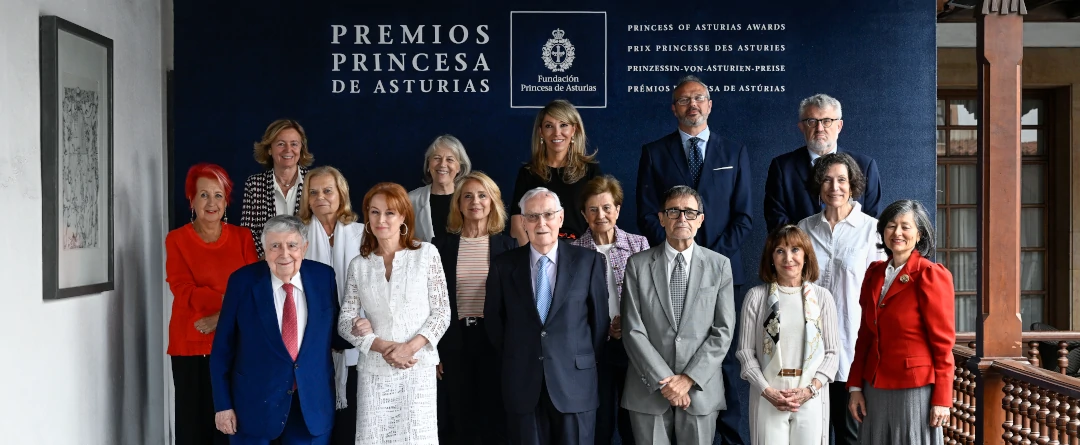Main content
Press releases
Meeting of the jury for the 2023 Princess of Asturias Award for Communication and Humanities
45 nominations encompassing 16 different nationalities are in the running for this Award, the second of eight international awards that are bestowed each year by the Princess of Asturias Foundation, now in their 43rd year.

The Jury responsible for conferring the 2023 Princess of Asturias Award for Communication and Humanities will meet this coming 3rd and 4th May in Oviedo. This is the second of the eight international awards convened by the Princess of Asturias Foundation this year, now in their 43rd year. A total of 45 candidatures encompassing 16 different nationalities are in the running for the Award. The meetings will be held at the Reconquista Hotel.
As stated in the Foundation’s Regulations, the Princess of Asturias Awards are aimed at rewarding “the scientific, technical, cultural, social and humanitarian work carried out at an international level by individuals, institutions or groups of individuals or institutions”. In keeping with these principles, the Princess of Asturias Award for the Communication and Humanities is to be granted to “the work of fostering and advancing the sciences and disciplines considered humanistic activities or any activity related to social communication in any of its forms.”
Each Princess of Asturias Award comprises a Joan Miró sculpture representing and symbolising the Award, a diploma, an insignia and a cash prize of fifty thousand euros.
The members of the Jury will hold an initial meeting with the media at 11:00am on Wednesday 3rd in the hotel’s “Salón de Consejos” reception room (first floor) immediately prior to its formal constitution and the start of its deliberations, which will commence at 11:30am, after the group photograph. Each jury shall have a chairperson and an acting secretary. Both shall be appointed by the Princess of Asturias Foundation and shall have voice and vote.
The Jury’s decision will be announced at 12:00 noon (GMT+2:00) on Thursday 4th, in the “Salón Covadonga” reception room in the same hotel (ground floor), following which the members of the Jury will be available for interview.
Composition of the Jury
The Jury will be made up of the following persons:
- Víctor García de la Concha (chair)
- Alberto Anaut González (acting secretary)
- Luis María Anson Oliart
- Rosa María Calaf Solé
- Irene Cano Piquero
- Gabriela Cañas Pita de la Vega
- Adela Cortina Orts
- Miguel Falomir Faus
- Gloria Fernández-Lomana García
- Taciana Fisac Badell
- Alma Guillermoprieto
- Catalina Luca de Tena y García-Conde, Marchioness of Valle de Tena
- Enrique Pascual Pons
- Carmen Riera i Guilera
- Elena Sánchez Caballero
- Diana Sorensen
Iframe code for live streaming of the announcement of the jury’s decision:
End of main content
